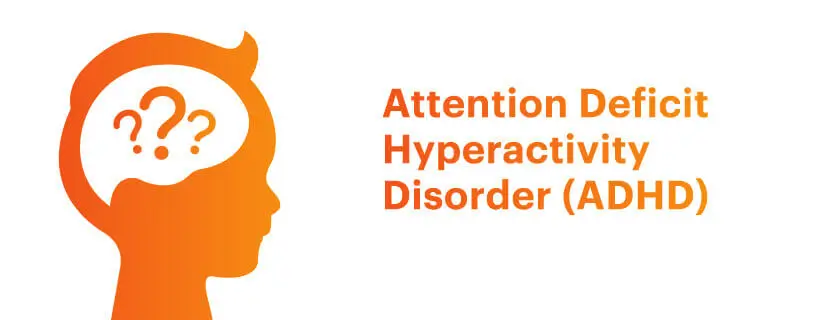-
Doctors
-
Specialities & Treatments
Centre of Excellence
Specialties
Treatments and Procedures
Hospitals & Directions HyderabadCARE Hospitals, Banjara Hills CARE Outpatient Centre, Banjara Hills CARE Hospitals, HITEC City CARE Hospitals, Nampally Gurunanak CARE Hospitals, Musheerabad CARE Hospitals Outpatient Centre, HITEC City CARE Hospitals, Malakpet
HyderabadCARE Hospitals, Banjara Hills CARE Outpatient Centre, Banjara Hills CARE Hospitals, HITEC City CARE Hospitals, Nampally Gurunanak CARE Hospitals, Musheerabad CARE Hospitals Outpatient Centre, HITEC City CARE Hospitals, Malakpet Raipur
Raipur
 Bhubaneswar
Bhubaneswar Visakhapatnam
Visakhapatnam
 Nagpur
Nagpur
 Indore
Indore
 Chh. Sambhajinagar
Chh. SambhajinagarClinics & Medical Centers
Book an AppointmentContact Us
Online Lab Reports
Book an Appointment
Consult Super-Specialist Doctors at CARE Hospitals
Attention Deficit Hyperactivity Disorder (ADHD)
Updated on 18 November 2022

What is Attention Deficit Hyperactivity Disorder (ADHD)?
ADHD, or Attention Deficit Hyperactivity Disorder, is a disorder related to the brain. It was initially referred to as ADD or Attention Deficit Disorder, and it was given the name ADHD in the 1990s. ADHD is mostly diagnosed during early childhood till teenage years. Its patients have issues in brain development that cause them to lack attention, self-control and focus and be hyperactive and impulsive.
ADHD can sometimes be mistaken for behavioural problems in children. However, children who have problem behaviours usually grow out of that phase. A child with ADHD cannot magically stop such behaviour. It is usually more common in boys, and the symptoms are also more pronounced in males compared to females.
Symptoms of ADHD in Children
ADHD symptoms in kids that may revolve:
- Inability to focus in school and making careless mistakes in studies and daily tasks
- Inability to sit still for longer intervals
- Tendency to daydream a lot
- Absent-mindedness
- Tendency to get fidgety, restless, and easily bored
- Inability to follow simple directions
- Excessive talking
- Tendency to interrupt others while talking
- Inability to wait patiently
- Hyperactivity occurs in episodes many times during the day
- Difficulty in making friends
- Inability to resist temptations.
Adult ADHD may present with a different set of symptoms like a hot temper, impulsiveness, difficulty coping with stress, relationship issues, procrastination or hyperactivity, mood swings etc. However, one can rely on multiple tips to improve your mental health.
What causes ADHD?
Research has been going on to identify the exact causes and risk factors for ADHD. However, no one main cause of ADHD has been identified. The research does show evidence that ADHD is more strongly linked to genetic factors. Therefore ADHD may tend to run in families. In addition to genetic factors, a few other causes that may increase the risk of ADHD include:
- Trauma or injury to the brain
- Premature birth or low birth weight
- Alcohol, tobacco or drug usage during pregnancy
- Certain infections or malnutrition during pregnancy
- Exposure to toxic chemicals like lead in the environment.
Types of ADHD
ADHD can manifest in four different ways, and healthcare providers diagnose the condition based on the specific symptoms observed in a child. These presentations include:
- Predominantly Inattentive Presentation: Formerly known as attention-deficit disorder (ADD), children with this presentation primarily struggle with inattentiveness. They find it challenging to focus, organize tasks, and stay on track, with fewer hyperactivity/impulsivity symptoms.
- Predominantly Hyperactive-Impulsive Presentation: Children with this presentation exhibit hyperactivity and impulsivity, with less noticeable attention difficulties. Hyperactive behaviors include fidgeting, inability to sit still, excessive energy, and talkativeness. Impulsivity involves interrupting others and acting without thorough consideration. This is the least common type, typically affecting younger children.
- Combined Presentation: Children with this presentation display at least six symptoms from both inattentive and hyperactive-impulsive types, with both sets of symptoms occurring equally. This is the most commonly recognized form of ADHD, encompassing around 70% of cases.
- Unspecified Presentation: In some cases, symptoms may be severe, causing significant dysfunction, but may not precisely fit the criteria for a diagnosis of ADHD in any specific type. In such instances, healthcare providers assign the diagnosis of "unspecified ADHD."
Diagnosis of ADHD
ADHD diagnosis is not a straightforward process. There is no specific diagnostic test that can diagnose ADHD in one go, and its diagnosing requires several steps. The diagnosis process includes medical exams for hearing and vision to rule out any other issues. The doctor from the best psychiatry hospitals in Hyderabad will also go through a checklist of each symptom and take a detailed account of the history of the child from parents, teachers, and the child. Therefore, a combination of physical, neurological, and psychological assessments will be made to diagnose if the child has ADHD.
Treatment of ADHD
A multimodal approach is usually considered the best in the treatment of ADHD. This involves a combination of medication and behavioural therapy. In younger children, training is also given to parents to help them deal with the condition of their child and successfully manage their symptoms. Changes in diet and reduction in screen time can also manage a lot of ADHD symptoms.
What are the best ADHD treatment options?
ADHD (Attention Deficit Hyperactivity Disorder) treatment options can vary depending on individual needs and preferences. Some of the commonly recommended approaches include:
- Behavioral Therapy: Behavioral interventions, such as Cognitive Behavioral Therapy (CBT) or behavior modification, aim to help individuals develop strategies to manage impulsivity, improve organizational skills, and enhance focus.
- Medication: Stimulant medications like methylphenidate (Ritalin, Concerta) and amphetamine-based medications (Adderall, Vyvanse) are often prescribed to manage ADHD symptoms. Non-stimulant medications like atomoxetine (Strattera) and guanfacine (Intuniv) are also used, particularly for those who can't tolerate stimulants.
- Parent Training: For children with ADHD, parent training programs teach parents effective strategies to manage their child's behavior and provide support.
- Counseling and Therapy: Psychotherapy, such as individual counseling or group therapy, can assist individuals in developing coping skills, managing emotions, and improving self-esteem.
- Lifestyle Changes: Adopting healthy lifestyle practices, such as regular exercise, balanced nutrition, and sufficient sleep, can help manage ADHD symptoms.
- Mindfulness and Relaxation Techniques: Practices like meditation, yoga, and deep breathing exercises can help individuals with ADHD improve focus, reduce stress, and enhance self-awareness.
What are the complications of ADHD?
In the absence of intervention, ADHD has the potential to result in various long-term challenges, which may encompass:
- Low self-esteem.
- Symptoms of depression and anxiety.
- Development of eating disorders.
- Sleep disturbances.
- Substance use disorders.
- Engagement in risky and impulsive behaviors.
Strategies for Coping with ADHD
Individuals with ADHD can adopt various coping strategies to manage their symptoms and improve their overall well-being:
- Time Management: Using timers, alarms, and calendars can help individuals with ADHD stay on track with tasks and appointments.
- Mindfulness and Meditation: Practicing mindfulness and meditation can help individuals with ADHD improve focus and reduce stress.
- Regular Exercise: Engaging in physical activity regularly can help reduce hyperactivity and improve overall well-being.
- Support Groups: Joining support groups or seeking counseling can provide a sense of community and valuable insights from others experiencing similar challenges.
Concluding Thoughts
Living with Attention Deficit Hyperactivity Disorder presents challenges, but with the right strategies and support, individuals can lead fulfilling lives. Whether you have adult ADHD or you live with a child who has been diagnosed with ADHD, you can manage to live normal and happy lives with the condition. With proper intervention and constant efforts, children and adults with ADHD can manage their symptoms and live normal lives. Remember, seeking professional guidance and staying proactive in managing ADHD are crucial steps toward a happier and more fulfilling life.
ENQUIRY FORM
SELECT CATEGORIES
-
Neurosciences (16)
-
Neurology (37)
-
Neurosurgery (14)
-
Orthopaedics (48)
-
Oncology (33)
-
Obstetrics and gynecology (51)
-
Pulmonology (23)
-
Urology (20)
-
Nephrology (13)
-
Psychiatry (7)
-
Dietetics and Nutrition (111)
-
General Medicine (63)
-
Cardiac Sciences (30)
-
Vascular & Endovascular Surgery and Interventional Radiology (10)
-
Gastroenterology (46)
-
Endocrinology (23)
-
Plastic Surgery (10)
-
Critical Care Medicine (5)
-
COVID-19 (16)
-
Dermatology (16)
-
Emergency Care (1)
-
Ophthalmology (4)
-
Pediatrics (14)
-
Laparoscopic and Bariatric Surgery (8)
-
ENT (15)
-
Kidney Transplant (1)
-
Liver Transplantation and Hepatobiliary Surgery (5)
-
General Surgery (3)
-
Internal Medicine (5)
-
Medicine Information
10 Tips to Improve Your Mental Health
Types of Stress: Causes, Symptoms and How to Cope
YOU MAY ALSO LIKE
RECENT BLOGS
-

Direct Anterior Approach in Total Hip Replacement: Advantages and Challenges
10 April 2025
Read More
-

Zinc Deficiency: Signs and Symptoms, Causes, Treatment
9 April 2025
Read More
-

Chest Pain When Coughing: Causes, Treatment and Home Remedies
9 April 2025
Read More
-

12 Health Benefits of Eating Mushrooms
8 April 2025
Read More
-

7 Health Benefits of Blood Donation You Should Know About
8 April 2025
Read More
-

Implantation Bleeding Vs Periods: Know the Difference
28 February 2025
Read More
-

Bloating During Ovulation: Symptoms, Causes and Remedies
28 February 2025
Read More
-

Itching During Dengue: Causes, Treatment and Home Remedies
18 February 2025
Read More
Have a Question?
If you cannot find answers to your queries, please fill out the enquiry form or call the number below. We will contact you shortly.






